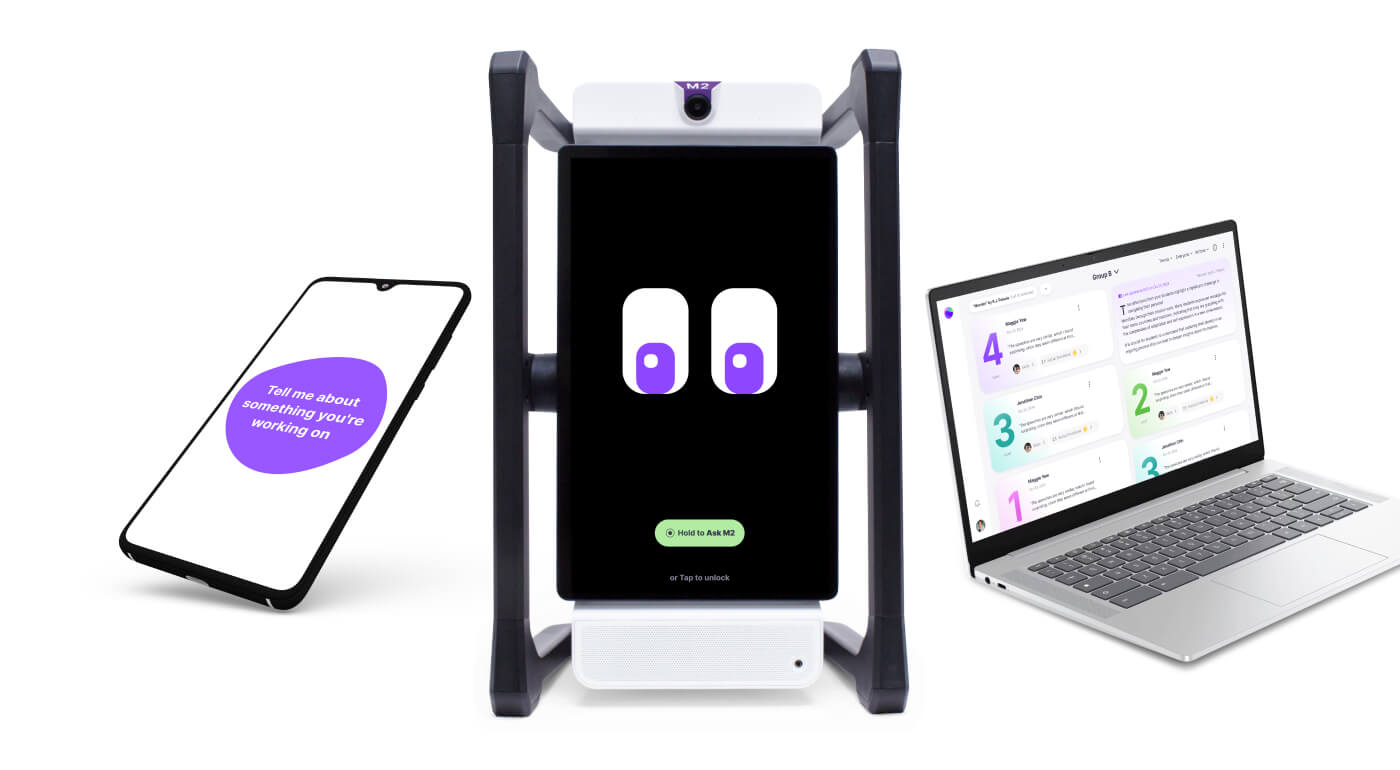
M2 + Mirror are an interactive reflective solution available as hardware (M2) or stand-alone software (MirrorTalk) for any device. Together, they support students, teachers, and adult learners. MirrorTalk generates insights that:
- Uncover learning gaps
- Measure understanding
- Track zone (ZPD), mindset, and more
MirrorTalk automates the reflection process. By inputting a learning objective from a lesson plan, a teaching standard, or a professional development goal, MirrorTalk generates custom reflections in seconds. In addition to the insight dashboard generated after each reflection, participants also receive actionable and personalized feedback.
With M2, you can guide small groups through social and project-based learning activities. Many of our users incorporate Workspace when they customize reflections for their learning objectives, which adds engaging tools like a whiteboard, lesson resources, timers, polling, and more to their students’ activities. This enables students to work and reflect autonomously and collaboratively, allowing teachers to focus on other areas of the class.
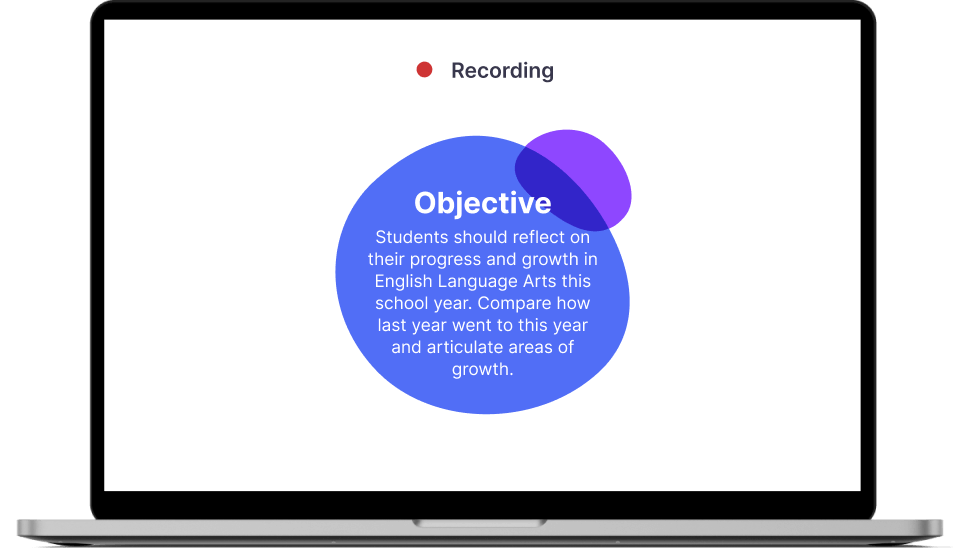
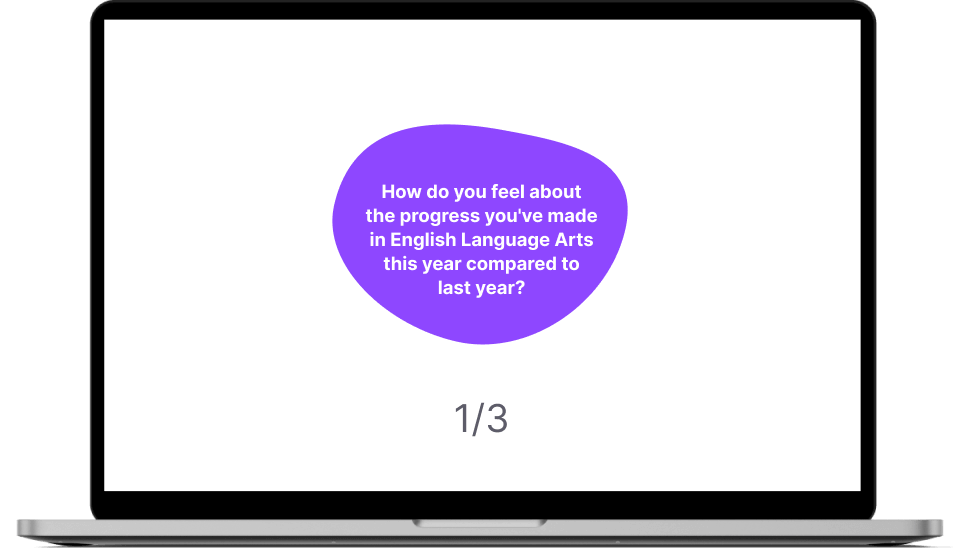
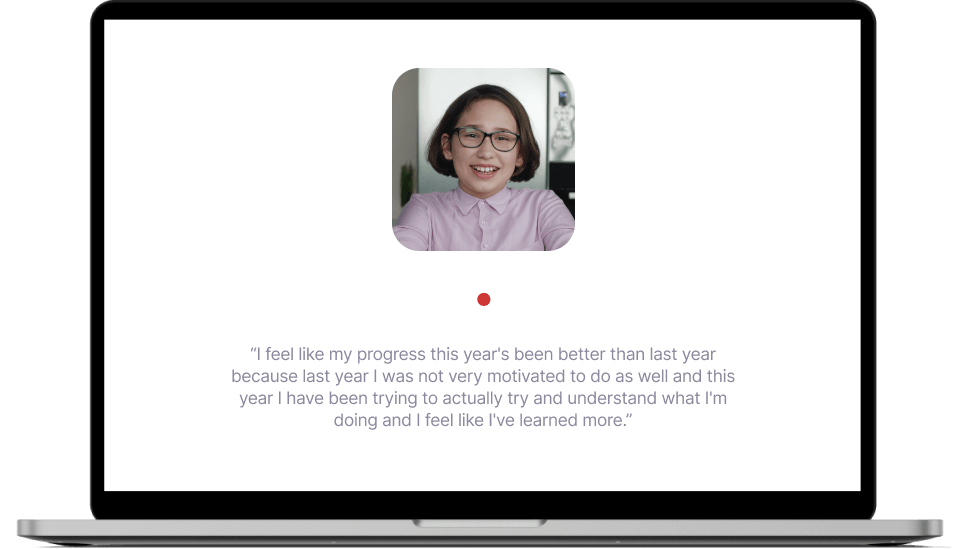
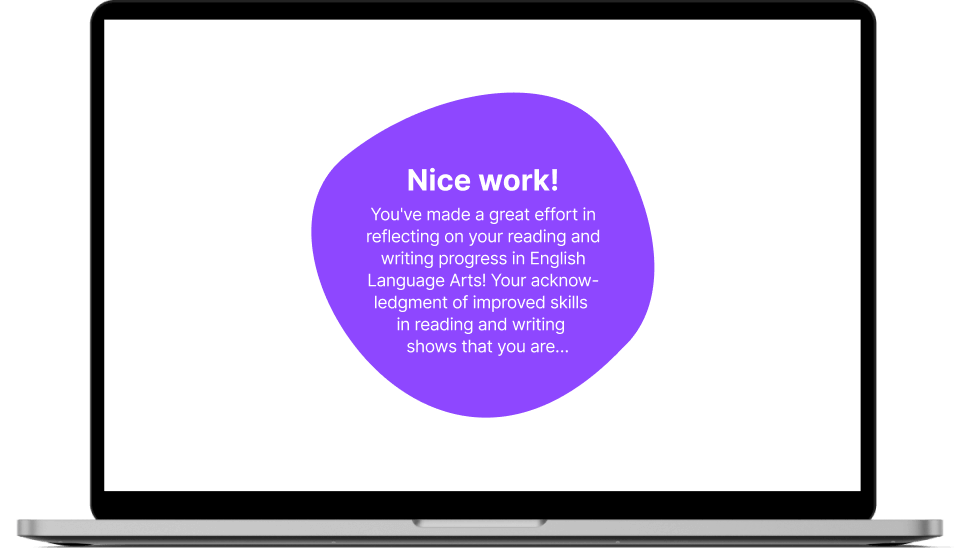
Here are some ideas to get everyone reflecting regardless of subject area, grade level, or specialty, inspired by real users.
Make math relevant
No matter what grade level or type of math you teach, you’ve heard students groan “OK, but when will I ever use this?” too many times to count. When you set up a reflection based on math learning objectives on MirrorTalk the prompts are automatically generated to help students make connections between math and the world around them. It also encourages them to acquire the reflective skills they need to persevere through challenging math problems.
Improve writing with verbal reflection
When students reflect with MirrorTalk, AI analyzes their verbal word choices and offers feedback on how to improve their thinking, not only giving teachers a clearer picture of how well students understand concepts, but their mindsets, too. The verbal feedback MirrorTalk gives students instantly also helps them improve by conveying a summary of their thoughts in writing, demonstrating to students how to make stronger writing choices on future assignments.
Extra support for English learners
MirrorTalk helps English learners find their voice while adjusting to new learning environments as well as gain confidence while preparing them for oral examinations. Set up any activity Objective in Spanish (more languages coming soon!) have students respond in English and MirrorTalk provides judgment-free and encouraging feedback to your students after each reflection.
Bringing history into context
Organize students into small groups and set up a Reflection with an M2 Workspace:
- Set the Objective and choose a Focus.
- E.g. Students should reflect on the impact of rhetoric in a speech or protest on shaping the historical event we’re studying.
- Check the Workspace button.
- Step 1: Add the Link tool with the video or audio clip of your selection to students to watch/listen to and record directions for the students:
- E.g. First you will hear the speech/protest in your small groups.
- 2nd step: Add the Timer tool, set the desired time for discussion, and record directions for the students:
- E.g. Discuss how this speech or protest might have been perceived by the audience of that historical period.
At the end, students will reflect not only on the impact that this selection had on this moment in history but also the impact it made on them. MirrorTalk will share actionable feedback for the group on they can make connections within other historical contexts.
A self-sustained feedback loop in Speech and Debate
Organize students into small groups and set up a Reflection with an M2 Workspace:
- Set the Objective and choose a Focus.
- For example: Listen to your classmates practice their extemporaneous speech and then critique their performance.
- Check the Workspace button.
- Add only one step: the Recording tool, and record directions for the students:
- For example: The first group member will record themselves orating their speech for the rest of their groupmates.
This idea infuses feedback two-fold for both the speaker and their audience: the speaker will get feedback from the group on the spot when they answer the reflective questions that MirrorTalk asks. The group members will also receive encouraging feedback from MirrorTalk on how they are developing their feedback skills.
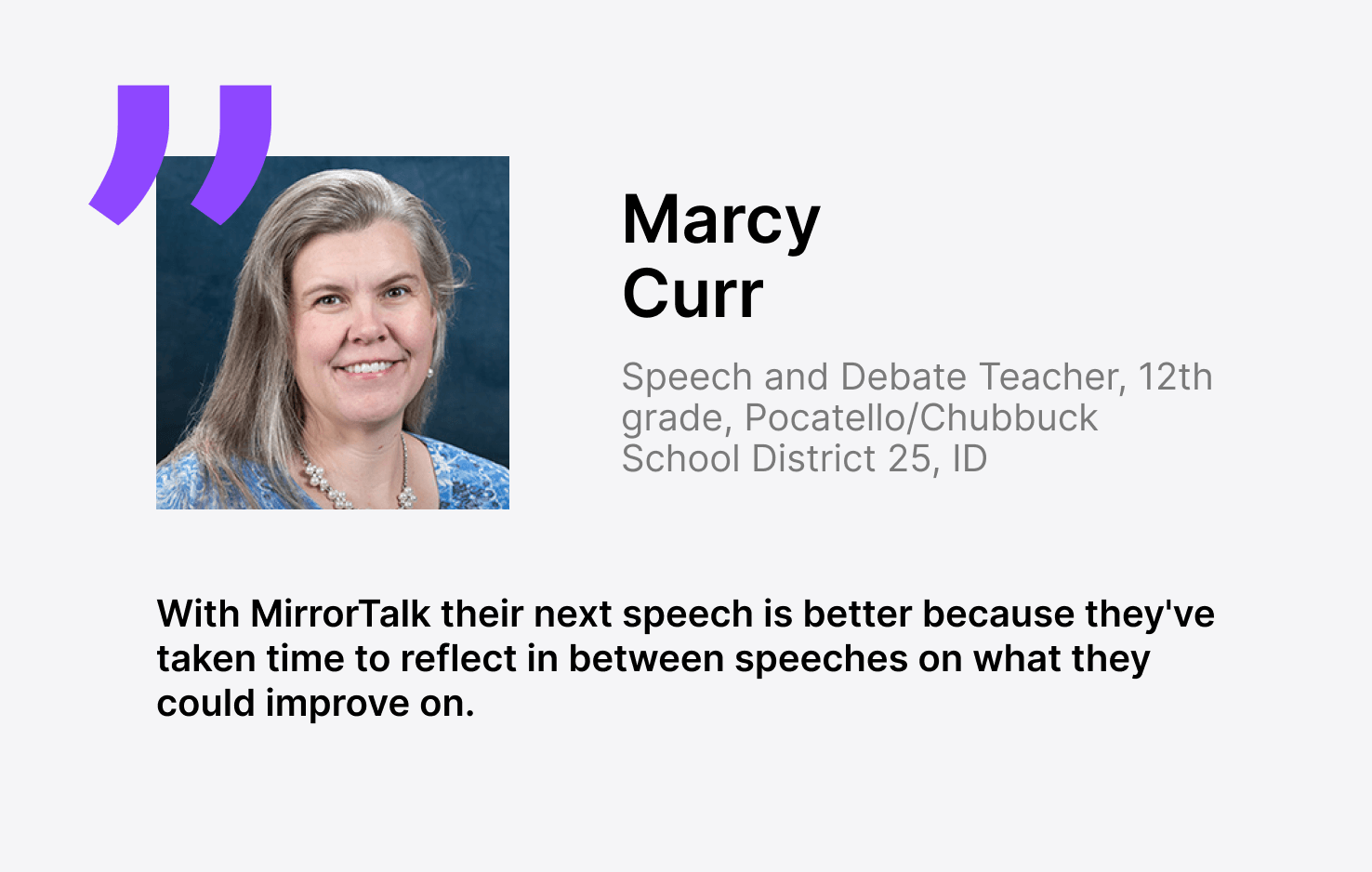
Go deeper than diagnostic
Before students begin any curriculum, we measure their incoming knowledge through a diagnostic exam, but this only gives us a number, and usually not the most holistic one because you’re missing the student’s internal understanding and mindset before, during, and after the exam. By setting up a MirrorTalk Objective with the diagnostic exam’s subject right after students complete the exam, students receive instant, encouraging feedback to help them prepare for their test results and give you a deeper sense of that student’s learning gaps. This helps you plan your differentiation strategies at the beginning of the school year with more accuracy and confidence.
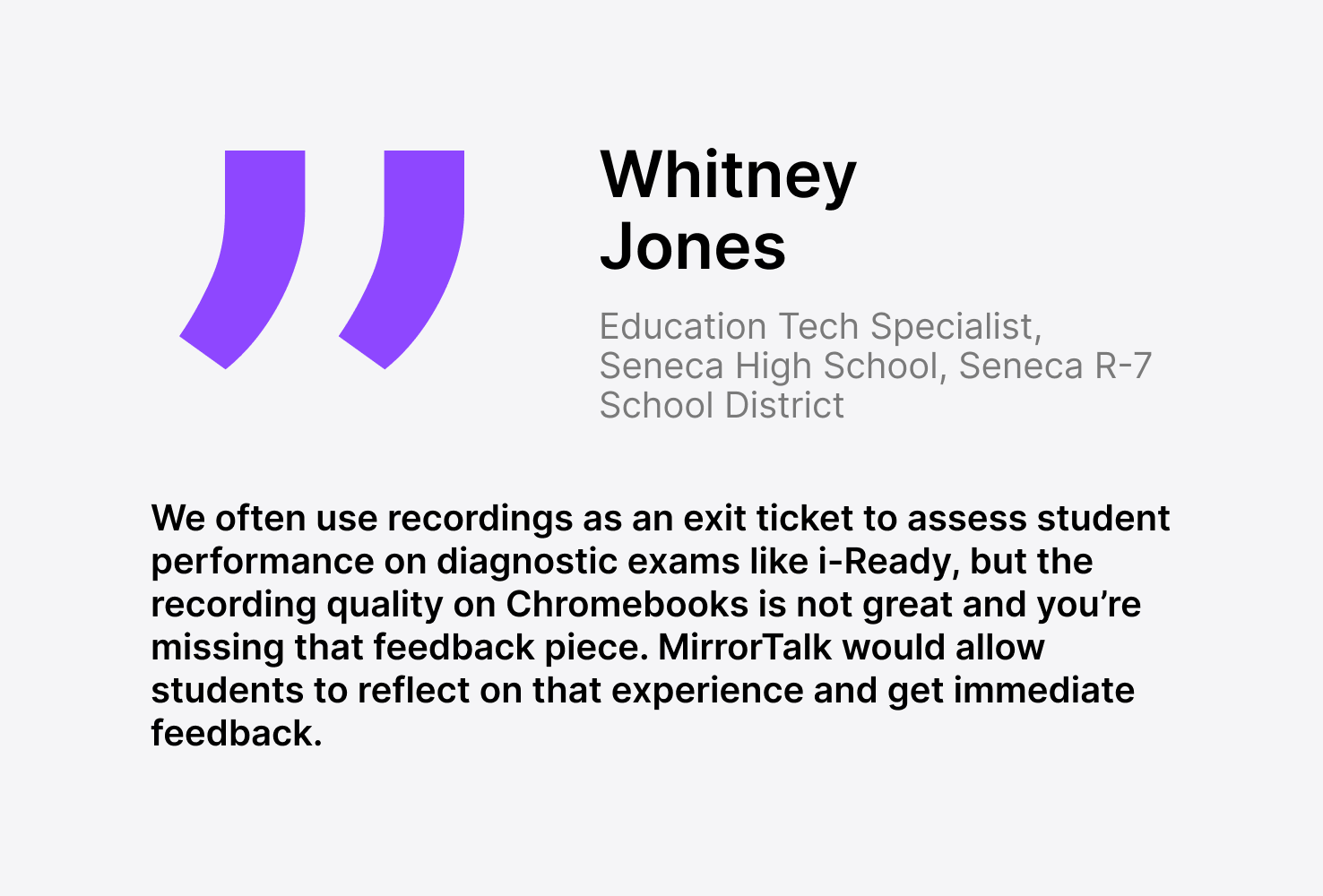
Your go-to “end-of-anything” reflection
MirrorTalk’s Summative Focus allows students to reflect on how an end-of-unit project really went. Set up a MirrorTalk reflection with your project’s specific Objective about your project and choose the Summative Focus. MirrorTalk’s questions will ask students to self-assess their work and describe the processes they took to complete the project. Afterward, MirrorTalk will provide actionable feedback to students on how to improve in future projects.
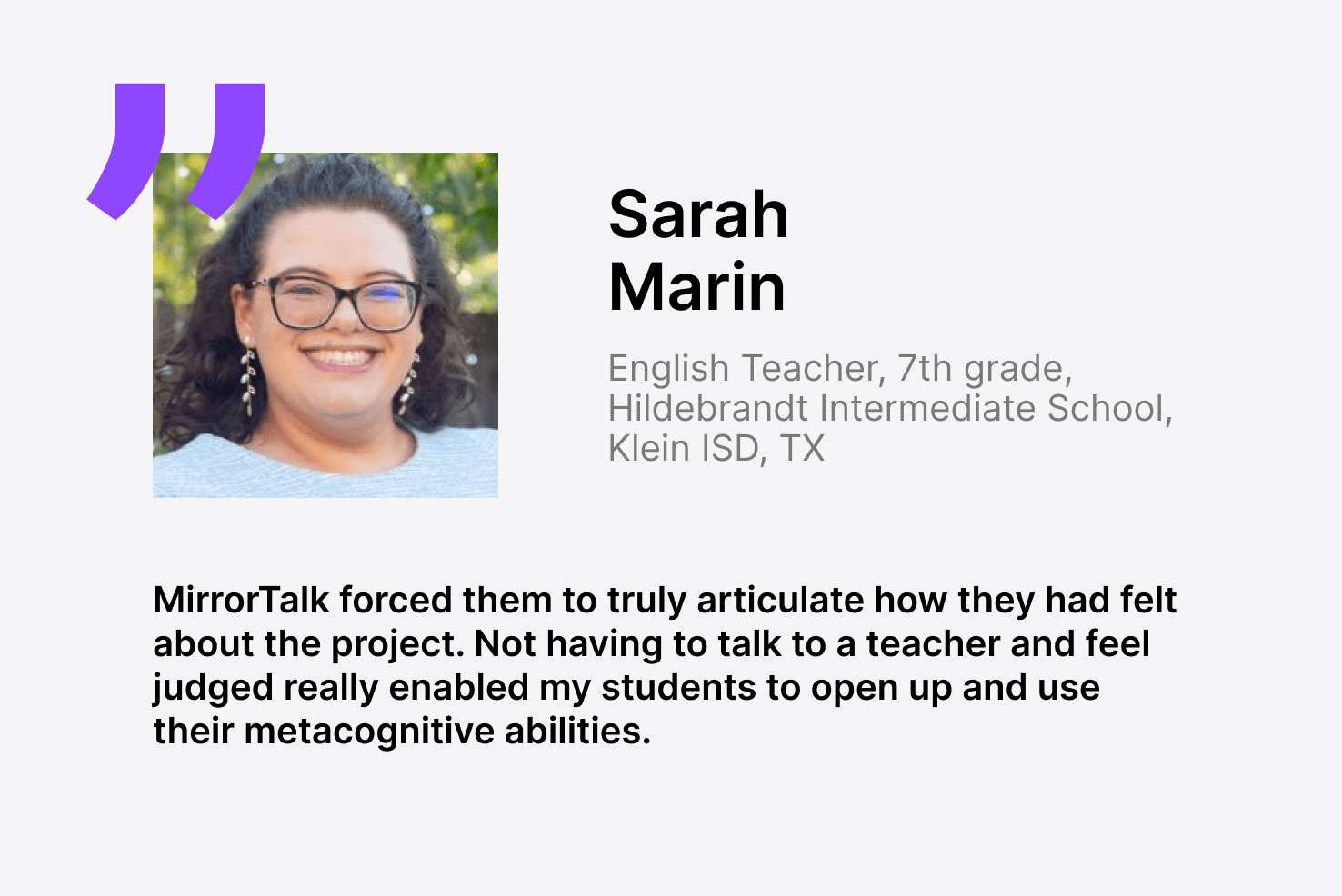
Practice calm and mindfulness
Create calm in a busy, public space like the library and set up the reflection with an Objective that has students reflect on any school or life experience e.g. “Take this time to talk about anything on your mind.” Choose a Focus like motivation, gratitude, or improving relationships.
At the end of every reflection, MirrorTalk offers students a Recharge exercise: a brain break that calms or energizes depending on which one the student chooses. The student will then receive supportive and encouraging feedback and guidance on how to improve their thinking on whatever they discussed in the reflection.
Keeping hands-on STEM projects
During labs, M2 + MirrorTalk is your students’ guide on the side. Organize students into small groups and set up a Reflection with a Workspace:
- Set the Objective and choose a Focus.
- E.g. Work in small groups at your lab stations today.
- Check the Workspace button.
- Step 1: Add the Link tool with the video clip describing the lab’s safety procedures and record directions for the students:
- E.g. Take a few minutes to refresh on our lab’s safety procedures before you begin.
- Step 2: Add the Link tool for your online slide deck detailing the instructions for today’s specific experiment. Record directions for the students:
- E.g. Review today’s experiment instructions and prepare your lab stations.
- Step 3: Add the Whiteboard tool for students to write down any outcomes or notes from the experiment. Record directions for the students:
- E.g. Jot down anything you want me to know about your experiment results on the whiteboard before you finish up and reflect on this experience.
Finally, students reflect on their experiment as a group. They’ll get instant feedback from MirrorTalk regardless if their experiment was successful to motivate them for their presentation of their results to the rest of the class.
Make M2 a socratic seminar participant
This activity lets M2+MirrorTalk shine at what it does best. Set your Objective to guide your student’s discussion. Seat M2 at a place in the circle. When it’s M2’s turn to “speak” it will generate relevant questions to spark a collaborative discussion during students’ Socratic Seminars. MirrorTalk’s encouraging feedback will help every student find their voice if they’re struggling to find their voice in seminar settings.
Parent and community feedback
At any school-sponsored event, set up M2 as your go-to reflection station for faculty, parents, and community members to get feedback and understanding of the initiatives happening at your school. Set up the Objective based on the theme of the event, whether it be an art exhibit, school play, or open house, and gain instant feedback from MirrorTalk about how the event was perceived.
Ready to transform your reflective practice with M2+MirrorTalk? Schedule a live demo with the Swivl team to learn more.